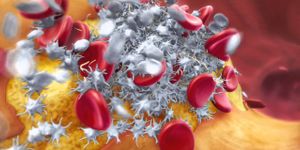While it might seem wise to use the most intensive chemotherapy available following a breast cancer diagnosis, new research from Europe indicates that more and stronger chemo is not always better. Women who have early breast cancer are sometimes given what is called "dose dense chemotherapy" if they have a high risk kind of breast cancer. In this treatment model, doses of chemo are given in shorter intervals. Where a typical model might call for a cancer drug to be given every three weeks, in dose dense chemotherapy, that interval is shortened to every two weeks.
The new research followed women for five years. Women that had the shorter intervals of treatment did not see any benefit over women who went with the standard timing. Both in recurrence free survival and overall survival the difference in dosage and timing did not come into play. In addition, problems from this increased interval dosing impacted quality of life for some of the patients. Blood cell counts went down significantly putting women at risk for more frequent infections and compromised their immune system.








